Barking Dogs
Dogs are an important part of our local community but dogs that bark excessively can become a source of irritation for neighbours and others using the local environment. Our best friend can, if it barks continually, become an intrusion and create friction between neighbours.
We receive numerous complaints regarding nuisance noise from barking dogs. Approaching the dog’s owner in a neighbourly manner and discussing your concerns with them sometimes easily resolves this type of complaint. The dog’s owner may not realise that the barking is causing an annoyance to other people.
Neighbours can help each other to solve barking problems by communicating to each other their concerns and needs. Neighbours can assist by identifying the reasons for excessive barking and noting what is happening in the area when the dog is barking. The dog’s owner may not realise that the barking is causing an annoyance to other people. This may be because:
- The dog may only bark excessively when the owner is not home.
- The owner may not hear the barking from various areas within the house.
- The owner may be a very sound sleeper and not woken when the dog barks.
Approaching the dog’s owner should be the first step when the problem arises and state your case clearly and politely. He or she may not be aware of the barking situation.
If the dog owner is unapproachable or you are not comfortable approaching them, try placing the ‘Dear Neighbour’ letter into their letterbox including ticking any tips and times that may help resolve the complaint.
In most cases the solution can be found by communication between neighbours or mediation services and should be sought prior to lodging a complaint with the Council.
Dear neighbour letter(PDF, 165.31 KB)
Should you be unable to resolve the barking via neighbour communication then Council will have preliminary discussions with the dog owner.
You can contact the Council to lodge your concerns. Please ensure you provide as much detail as possible about the nuisance barking, so the Community Safety Officer has sufficient information when having preliminary discussions with the dog owner.
Council has found that early intervention and communication from a Community Safety Officer can resolve the problem without the need for a formal investigation, which is a more desired outcome for all parties involved.
However should the barking not be resolved after preliminary discussions then Council will need to conduct a formal investigation. A complaint form is required and can be requested from Council in person or by telephone on 8405 6600.
If a barking problem is acknowledged by both the dog owner and complainant, Council may also assist with training providers, as the underlying reason for barking may be more than a behavioural problem and could be anxiety or health related. Consulting with a vet is always recommended.
How to Lodge a Request?
You can lodge a request by contacting Customer Relations on 8405 6600 or log an online service request: Animals – General Dog Enquiries – Barking Dog
On receipt of the complaint forms Council’s Community Safety Officers will:
- Study the complaint forms and 14 day diaries to establish barking patterns in an attempt to try to determine the reason for the dog’s barking;
- Confirm that other nominated residents are being affected by the dog’s barking by a survey;
- Advise the dog owner of the complaint, discuss possible solutions and inform them of their responsibilities.
If the Community Safety Officer believes there is a problem with the dog, they will work with the owner until they believe that the owner has done everything possible to help correct the barking behaviour.
What happens if the dog owner doesn't co-operate?
If the dog owner refuses to co-operate the process becomes more formal. Council has the power to expiate (fine) or serve a Control (Barking Dog) Order (a legal document) on the dog owner to take reasonable steps to abate the barking. Further conditions may also be imposed by Council through the order making process.
After this time Council may request that you and other affected neighbours complete further barking diaries or provide feedback throughout the investigation. The outcome may be different in each case and the Council will keep all parties updated with any outcomes.
If investigations from Council do not determine a nuisance barking problem, this does not limit or negate your civil rights to seek relief. For further advice, you may wish to contact one of the following:
- Your own solicitor;
- Legal Services Commission of South Australia (Tel. 1300 366 424) or www.lsc.sa.gov.au
